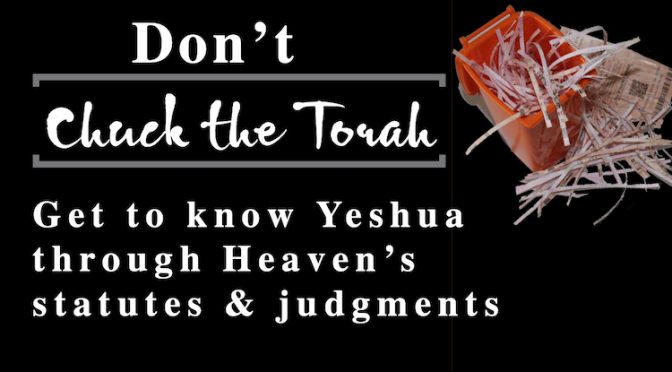Torah reading רְאֵה Re’eh (“see,” Deut. 11:26–16:17) immediately starts out with Moses’s reminder that God wants to bless the legacy of Israel in the land He provided, but He expects them to act in a certain manner. As His representatives on earth, the descendants of Israel are to act like Him, not like people of the nations around them.
Yeshua (Jesus), the Word of God made flesh, gave His apostles and those who would follow them the same advice: If you want to know how Yeshua walked and how to imitate Him, then all these stories will help you understand Yeshua better.






